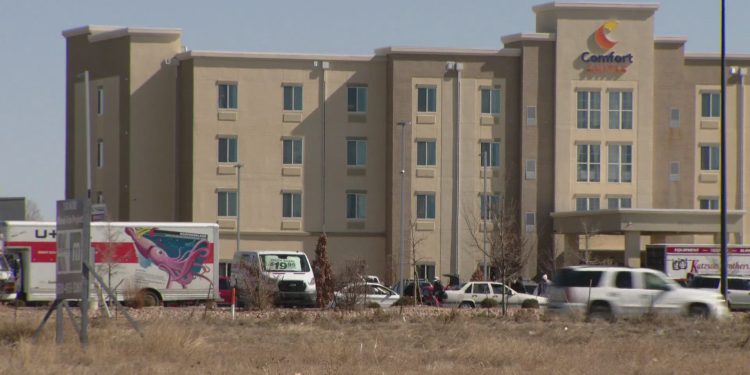Denver has successfully closed its final hotel shelter for migrants over the weekend. The city has been working diligently for the past two months to ensure that the migrants are placed in apartments or transitional housing.
According to Jon Ewing from the city of Denver, the shelter currently has eight new residents. Interestingly, this is the first time since the response began that there were zero new residents yesterday.
According to Ewing, the reception center in the city is open seven days a week from 8 a.m. to 5 p.m. and is always ready to welcome newcomers.
According to Ewing, the influx of charter buses into Denver has decreased in recent times. In the month of December, only 144 buses were reported to have arrived in the city.
According to Ewing, in the month of June, four charter buses arrived.
On Monday, Ewing revealed that the city has assisted over 42,000 new residents, incurring expenses of over $72 million. He emphasized that the shift from temporary lodgings to permanent housing options for incoming migrants is primarily driven by financial considerations.
Ewing mentioned that the cost per person in a hotel used to be $90 at one point. Therefore, a family of three would have to spend $270 per night just on accommodation.
According to him, migrants may have to shell out approximately $1,600 per month for renting an apartment as an illustration of the costs involved.
Ewing quickly grasped the math behind it, stating, “It makes sense.”
Denver to keep 2 migrant shelters open
According to Ewing, daily meals and security are also provided by the hotels. He also mentioned that having migrants live more independently helps with the cost.
According to Ewing, the migrant crisis is far from being over. He emphasized that people will continue to arrive and will require assistance.
Two shelters are being kept open by the city for migrants, one for families and another for individuals. Additionally, outreach services are being provided for those who are living on the streets, regardless of whether they are migrants or not. The Mayor’s All In Mile High initiative aims to house 2,000 individuals and is actively working towards this goal.
According to Ewing, their team has successfully provided housing to 1,600 individuals who were previously living on the streets. Their target is to reach 2,000 people and they are determined to achieve it.
The Denver Asylum Seekers Program and Work Authorization have been extensively explained by the city. Let me share a little more background on this topic.
Mayor Mike Johnston recently unveiled the Denver Asylum Seekers Program in April, aimed at providing long-term support and stability to those who are new to the city and may not immediately have access to federal work authorization. The program’s inaugural cohort, which comprises around 800 individuals, is presently in the process of seeking asylum through clinics supported by the city. As part of the WorkReady Denver initiative, which is a prerequisite of DASP, at least one adult per household is required to commit to a minimum of 20 hours of weekly job training. The classes for this program commenced in June and will continue for the next several months.
According to the statement, more than 2,300 individuals have been helped with their work authorization applications by Denver since February. Anyone interested in volunteering for a clinic can sign up using the provided link. The city expresses gratitude to various partners who have been instrumental in organizing work authorization clinics, including the United States Citizenship and Immigration Services (USCIS), Denver Agency for Human Rights & Community Partnerships (HRCP), City Attorney’s Office (CAO), Denver Human Services (DHS), Lutheran Family Services, Catholic Charities, Colorado Lawyers Committee, Justice and Mercy Legal Aid Center (JAMLAC), as well as volunteers from within the city and community.










